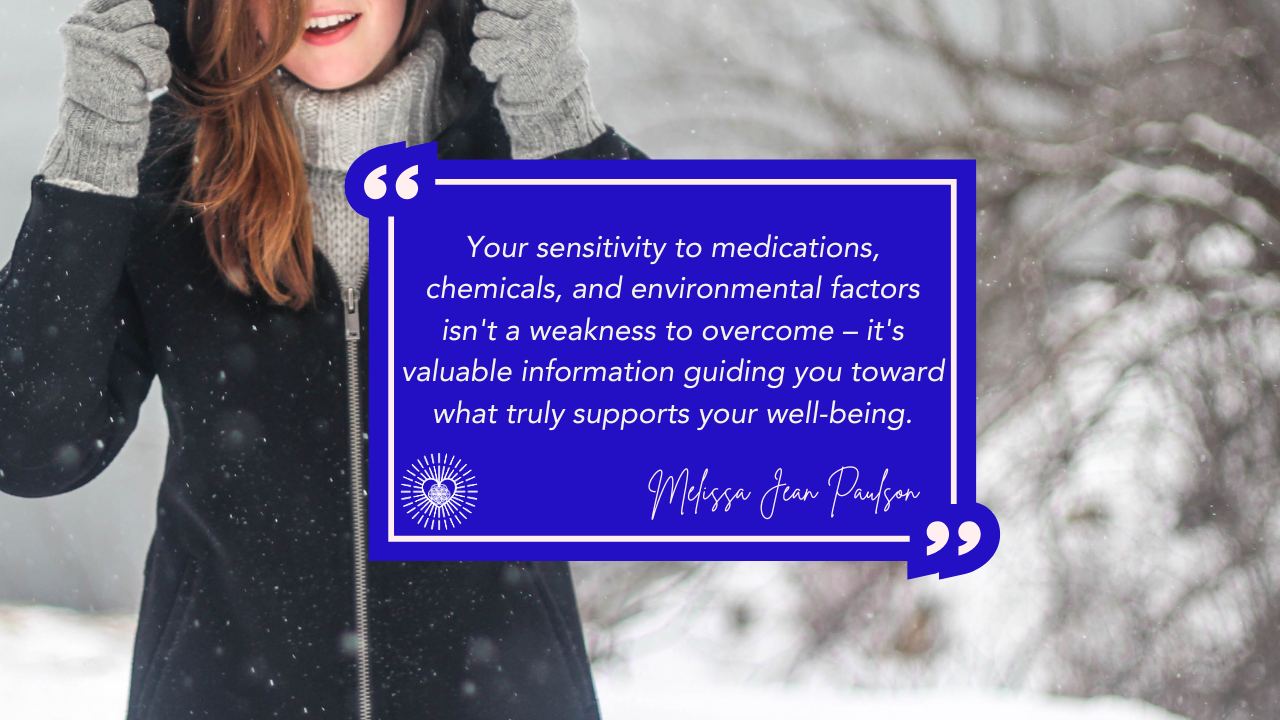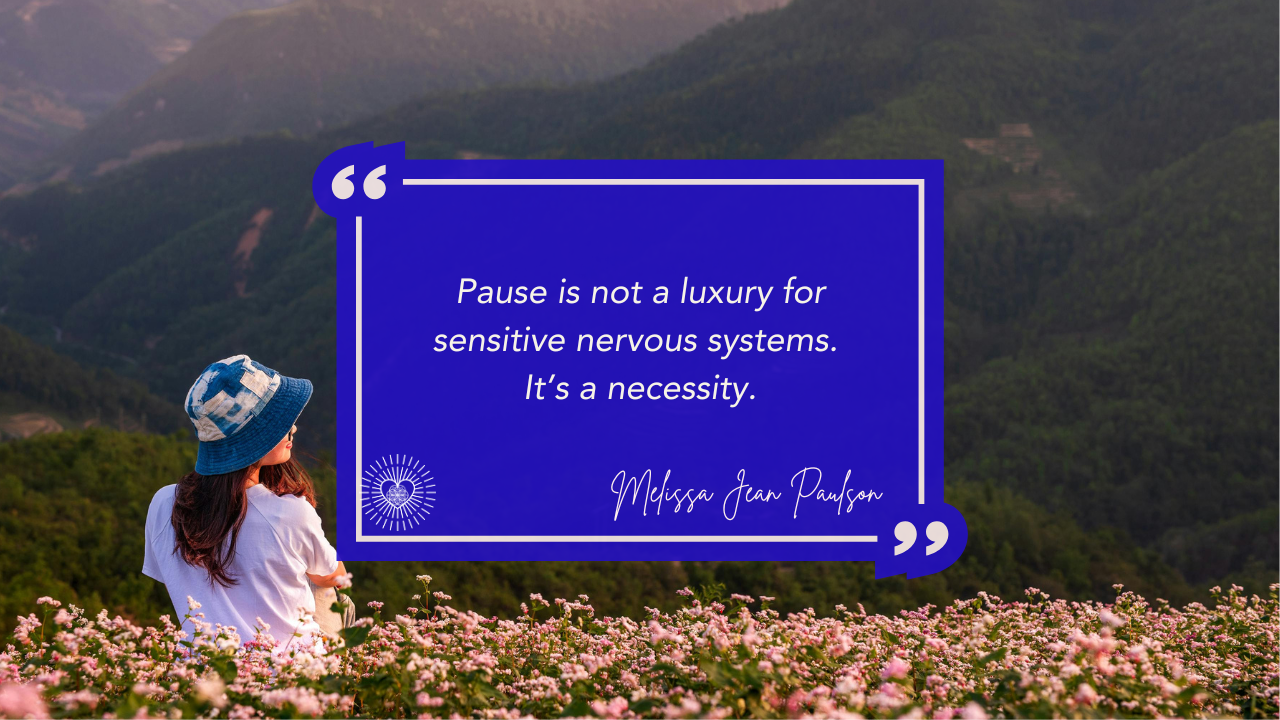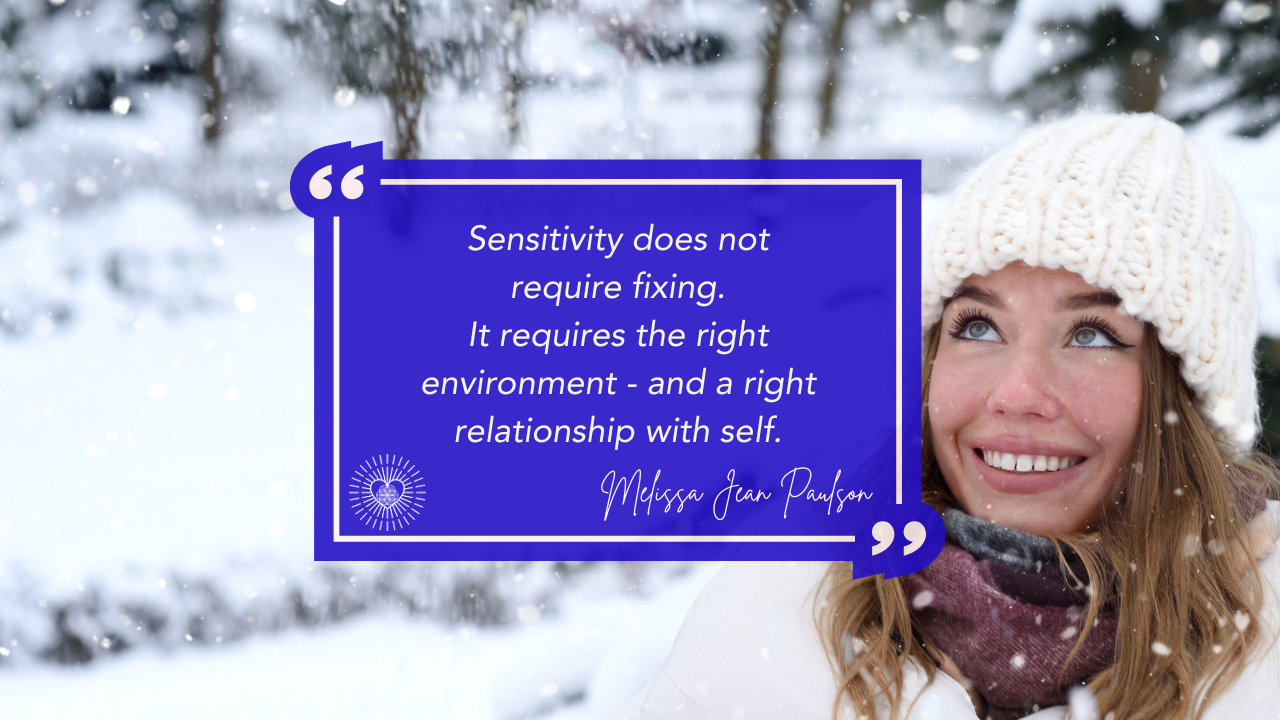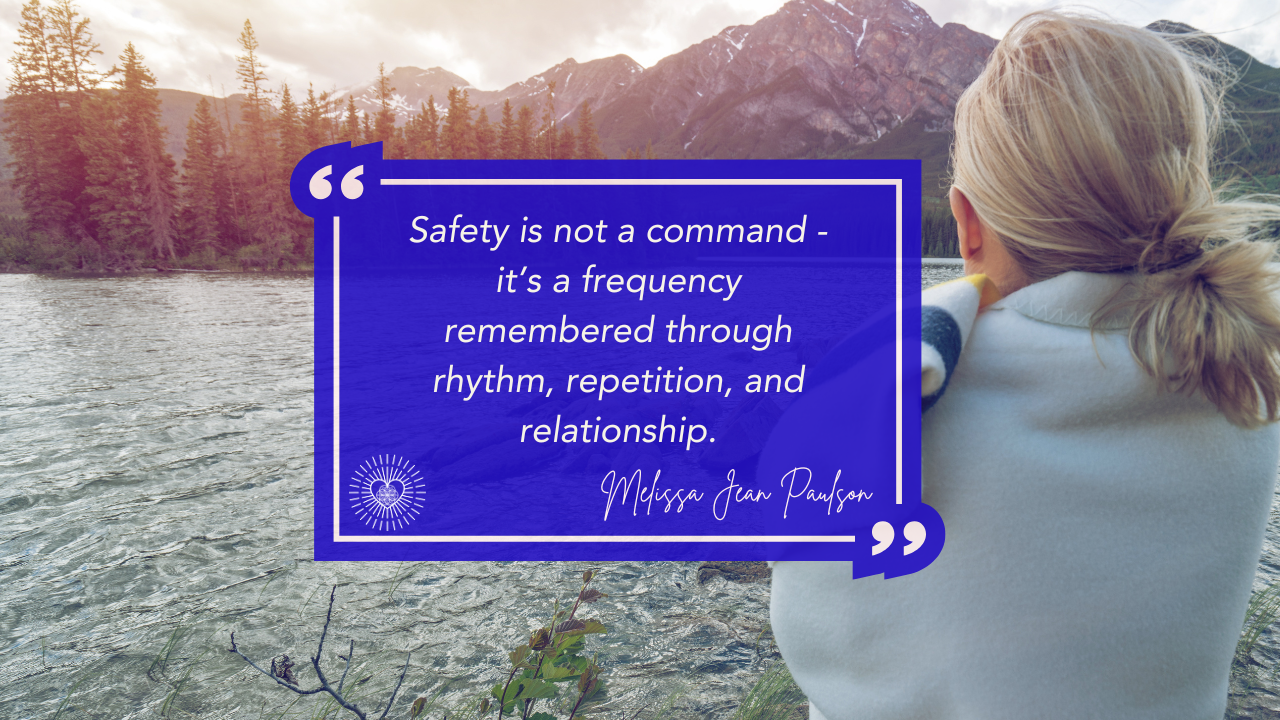Highly Sensitive Series (Part 5 of 9): Navigating Your Body's Signals & Needs (Body Series 2 of 3)
Jan 01, 2025
Welcome to the second part of our Body Series, where we deepen our exploration of your highly sensitive physical experience. Building on our understanding of your unique response system, we'll explore the intricate connections between your stress response, gut health, and environmental sensitivities that make your experience as a highly sensitive woman both challenging and profound. Research by Dr. Elaine Aron has established that this deeper processing is a genetic trait, affecting approximately 20% of the population (Aron & Aron, 1997).
The Sophisticated Language of Your Sensitive System
Your body's intelligence extends far beyond simple comfort or discomfort. As a highly sensitive woman, your nervous system and gut-brain connection operate with remarkable sophistication. Brain imaging studies demonstrate that highly sensitive people show increased activation in areas responsible for detailed processing and awareness (Acevedo et al., 2014). This heightened awareness manifests in various ways:
The Stress Response Cascade
Your body's reaction to stress is more intense and nuanced than others might experience. When faced with stressors - whether emotional, physical, or environmental - your system responds with a cascade of reactions:
- Your nervous system activates more quickly
- Stress hormones release in greater amounts
- Your digestive system responds more intensely
- Recovery time extends longer than others might need
This isn't a design flaw - it's your body's sophisticated way of processing information and protecting you from potential harm. Dr. Aron's research shows that HSPs process everything more deeply, including physical and emotional stressors, leading to more pronounced bodily responses (Aron et al., 2012).
The Gut-Brain Connection
For highly sensitive women, the connection between emotional processing and digestive function is particularly strong. Your gut, often called the "second brain," contains millions of neurons that communicate directly with your brain. This explains why you might experience:
- Digestive changes during emotional stress
- Strong gut reactions to challenging situations
- Food sensitivities that others don't notice
- Intuitive feelings that manifest as physical sensations
Understanding this connection helps explain why emotional boundaries and digestive health often go hand in hand for sensitive women.
Creating Balance: Working With Your Sensitive System
Understanding these complex interactions allows you to create strategies that honor your body's needs. Rather than fighting against your sensitivities, we can work with them to create sustainable well-being. As a sensitive woman, your body's responses to stress, environment, and nourishment require a more nuanced approach than conventional wisdom might suggest.
Nervous System Regulation Throughout Your Day
Your stress response needs conscious management, but this doesn't mean rigid routines. Instead, think of creating gentle rhythms that support your sensitive system. Begin your day before engaging with the digital world, allowing your nervous system to wake naturally. Many sensitive women find that jumping straight into emails or social media can trigger their stress response before the day truly begins.
Consider how you transition between activities. Your sensitive system benefits from gradual changes rather than abrupt shifts. This might mean taking a few deep breaths between meetings, stepping outside briefly during your lunch break, or creating small pockets of silence in your day. These aren't indulgences – they're essential practices for maintaining nervous system balance.
The Wisdom of Your Sensitive Digestion
Your gut wisdom extends beyond basic nutrition. As a highly sensitive woman, your digestive system acts as a barometer for your overall well-being. Eating in a calm state isn't just about good manners – it directly affects how your body processes nutrition. When you rush through meals or eat while stressed, your sensitive system struggles to digest properly.
Learning to honor your body's signals around food and nourishment might mean challenging cultural messages about when and how to eat. Perhaps you need longer between meals for proper digestion, or maybe your body requires smaller, more frequent nourishment. Trust that your sensitivity offers valuable guidance about what truly serves your body.
Creating Supportive Environments
Your physical space profoundly affects your well-being. Studies show that highly sensitive people are more affected by both negative and positive environments (Aron, 2020), making environmental adjustments particularly important. In a world full of synthetic fragrances, artificial lighting, and electromagnetic frequencies, creating spaces that support your sensitive system becomes crucial. This doesn't require a complete life overhaul – start with small changes in the spaces you control most.
Consider your bedroom, for example. Making this one room a sanctuary with natural materials, clean air, and minimal electronic disruption can provide your sensitive system with essential recovery time. From there, you can gradually expand to other areas of your life, advocating for your needs in ways that feel authentic and empowering.
The Art of Daily Integration
Living well as a sensitive woman in our modern world isn't about perfecting every aspect of your environment or constantly monitoring your stress response. Instead, it's about developing an intuitive flow that honors your body's needs while engaging fully in life. Think of it as dancing with your sensitivity rather than trying to control it.
Sometimes this means saying no to that extra coffee when you sense your system is already activated. Other times it's about finding creative ways to participate in life's activities while honoring your needs – perhaps bringing your own natural water to social gatherings or positioning yourself near exits or quiet spaces during events.
Building Resilience Through Understanding
Your sensitivity to medications, chemicals, and environmental factors isn't a weakness to overcome – it's valuable information guiding you toward what truly supports your well-being. When you understand that taking a lower dose of medication or needing fragrance-free spaces isn't about being "difficult," but about honoring your body's intelligent design, you can advocate for your needs with quiet confidence.
This understanding builds a different kind of resilience. Instead of pushing through discomfort or trying to match others' tolerance levels, you learn to work with your sensitivity. This might mean planning ahead for situations you know will be challenging or creating recovery time after unavoidable exposures.
Looking Forward: From Awareness to Empowerment
As we prepare to explore building physical resilience in our next article, remember that the journey we've outlined here – understanding your stress response, honoring your gut wisdom, and creating supportive environments – lays the foundation for true strength. This isn't about becoming less sensitive; it's about becoming more skilled at navigating life as a sensitive woman.
Conclusion: Embracing Your Body's Intelligence
Your body's heightened responses to stress, environments, and substances are sophisticated feedback mechanisms guiding you toward balance. When you learn to work with these signals rather than against them, you discover a new way of moving through the world – one that honors both your sensitivity and your strength.
Remember, each small adjustment you make in response to your body's signals is an act of self-trust. Whether it's creating better sleep habits, choosing cleaner products, or setting boundaries around stimulating environments, you're not just taking care of yourself – you're modeling a new way of being for other sensitive women.
How does your sensitivity guide your choices?
What wisdom has your body shared with you?
Related Articles:
- Highly Sensitive Series: Your Body's Unique Response System
- Highly Sensitive Series: Breaking the Cycle of Repetitive Thoughts
References:
¹ Aron, E. N., & Aron, A. (1997). Sensory-processing sensitivity and its relation to introversion and emotionality. Journal of Personality and Social Psychology, 73(2), 345-368.
² Price, C. J., & Hooven, C. (2018). Interoceptive Awareness Skills for Emotion Regulation: Theory and Approach of Mindful Awareness in Body-Oriented Therapy. Frontiers in Psychology.
³ Acevedo, B. P. (2020). The basics of sensory processing sensitivity. Journal of Applied Psychology.
This blog is part of The Re-Aligned Journey™ - A Spiral of Healing and Remembrance for sensitive women returning to right relationship with mind, body, and soul.
Join the Rise & Realign Lunar Letter
A weekly reflection of moon, mind, and body - guiding sensitive women to rise, reclaim, and remember.
Your privacy is sacred. We will never share or sell your information.






